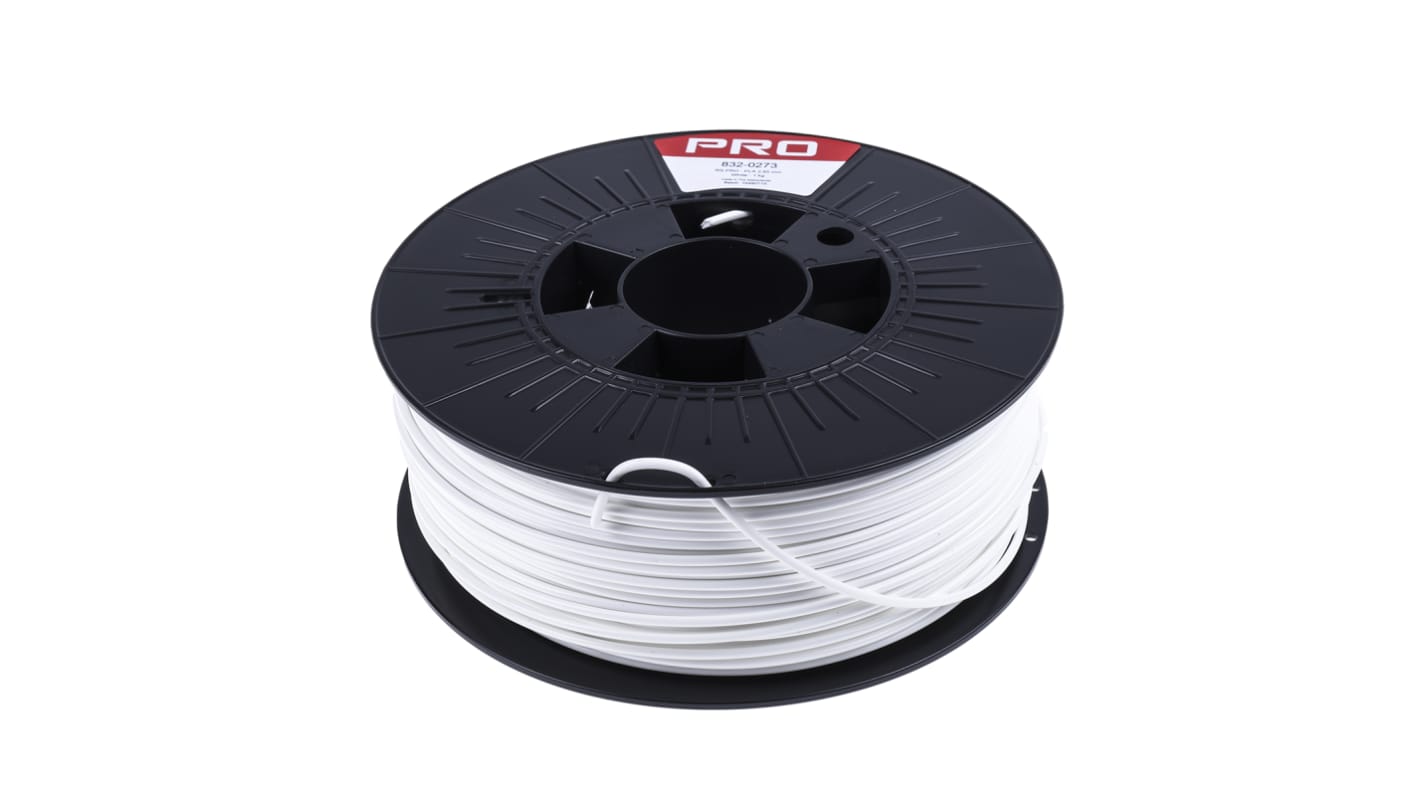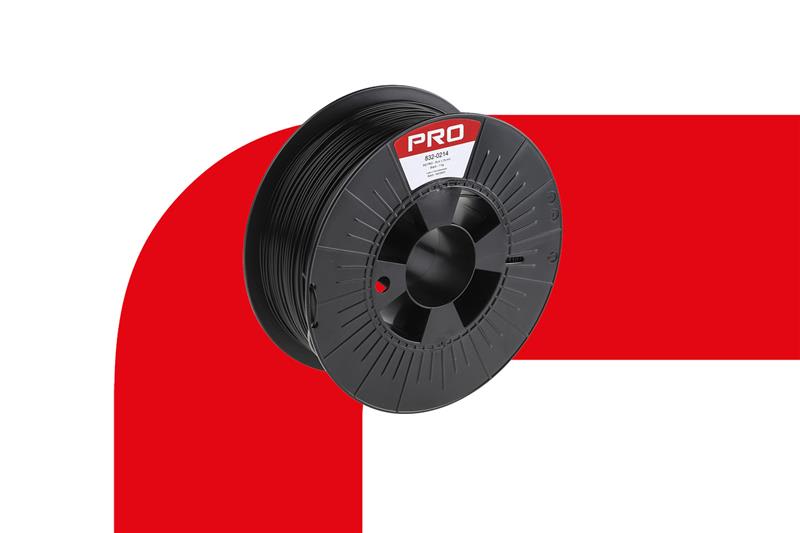RS PRO 2.85mm White PLA 3D Printer Filament, 1kg
- RS Stock No.:
- 832-0273
- Distrelec Article No.:
- 304-19-860
- Brand:
- RS PRO

Bulk discount available
Subtotal (1 unit)*
£29.98
(exc. VAT)
£35.98
(inc. VAT)
FREE delivery for orders over £50.00
In Stock
- Plus 109 unit(s) shipping from 01 December 2025
- Plus 256 unit(s) shipping from 01 December 2025
Need more? Click ‘Check delivery dates’ to find extra stock and lead times.
Units | Per unit |
|---|---|
| 1 - 2 | £29.98 |
| 3 + | £28.49 |
*price indicative
- RS Stock No.:
- 832-0273
- Distrelec Article No.:
- 304-19-860
- Brand:
- RS PRO
Specifications
Technical Reference
Legislation and Compliance
Product Details
Find similar products by selecting one or more attributes.
Select all | Attribute | Value |
|---|---|---|
| Brand | RS PRO | |
| Material Type | PLA | |
| Printing Technology | FDM | |
| Machine Specific | No | |
| Colour | White | |
| For Use With | Common Desktop 3D Printers | |
| Weight | 1kg | |
| Diameter | 2.85mm | |
| Printing Material | PLA | |
| Select all | ||
|---|---|---|
Brand RS PRO | ||
Material Type PLA | ||
Printing Technology FDM | ||
Machine Specific No | ||
Colour White | ||
For Use With Common Desktop 3D Printers | ||
Weight 1kg | ||
Diameter 2.85mm | ||
Printing Material PLA | ||
- COO (Country of Origin):
- ES
RS PRO 3D Printer Filament PLA 2.85mm, 1Kg
This PLA (polylactic acid) 3D Printer Filament from our high-quality own brand RS PRO is the most popular 3D printing filament material and it is the best material for getting started with your 3D printer.
Benefits
- Good tensile strength and surface quality, easy to work with at high print speed
- User-friendly for both home and office environments
- PLA filament allows the creation of high-resolution parts
- Due to the low shrinkage factor, PLA will not deform after cooling
- Hardens quickly
- Minimal thermal tension
- Minimal deformation
- Acetone resistant
- Semi-matte finish
- Does not require a heated bed, however, if you have a heated bed the recommended temperature is ± 50-60˚C
Features
- Filament Diameter: 2.85 mm
- Melting temperature: 210°C
- Heat distortion temperature HDT B (0,45MPa): 95°C
- Compatible with any printer that uses 2.85 mm filament
Applications
- Household tools
- Educational projects
- Show objects
- Prototyping
- Architectural models
Once you have purchased your filament, it is important to store it correctly to maintain its quality. Over time the plastic will absorb moisture from the air, creating small water bubbles in the filament. These bubbles when heated in the extruder nozzle quickly reach boiling point, spoiling the print. The use of desiccant dehumidifiers to absorb the moisture is highly recommended.
FAQs
What material can be used in 3D Printing?
Various materials can be used for 3D printing which includes:
PLA, ABS plastic, polyamide (nylon), glass filled polyamide, stereolithography materials (epoxy resins), silver, titanium, steel, wax, photopolymers and polycarbonate.
What is the least expensive 3D printing material?
PLA and ABS are the least expensive.
What material can be used in 3D Printing?
Various materials can be used for 3D printing which includes:
PLA, ABS plastic, polyamide (nylon), glass filled polyamide, stereolithography materials (epoxy resins), silver, titanium, steel, wax, photopolymers and polycarbonate.
What is the least expensive 3D printing material?
PLA and ABS are the least expensive.
RS PRO
RS PRO is our own brand range and brings you a wide range of high-quality, great value products offering you more choice. Trusted by engineers all over the world, every part of every RS PRO product has been rigorously tested against demanding industry standards; they’re only given the RS PRO Seal of Approval if we’re confident of their exceptional quality, which means you can be confident too.
Related links
- RS PRO 2.85mm White PLA 3D Printer Filament, 1kg
- RS PRO 2.85mm White PLA-X3 3D Printer Filament, 1kg
- Polymaker 2.85mm White PLA 3D Printer Filament, 1kg
- Verbatim 2.85mm White PLA 3D Printer Filament, 1kg
- RS PRO 2.85mm White Recycled PLA 3D Printer Filament, 1kg
- RS PRO 2.85mm White Tough PLA 3D Printer Filament, 1kg
- RS PRO 2.85mm White PLA 3D Printer Filament, 2.3kg
- RS PRO 2.85mm White ABS 3D Printer Filament, 1kg

